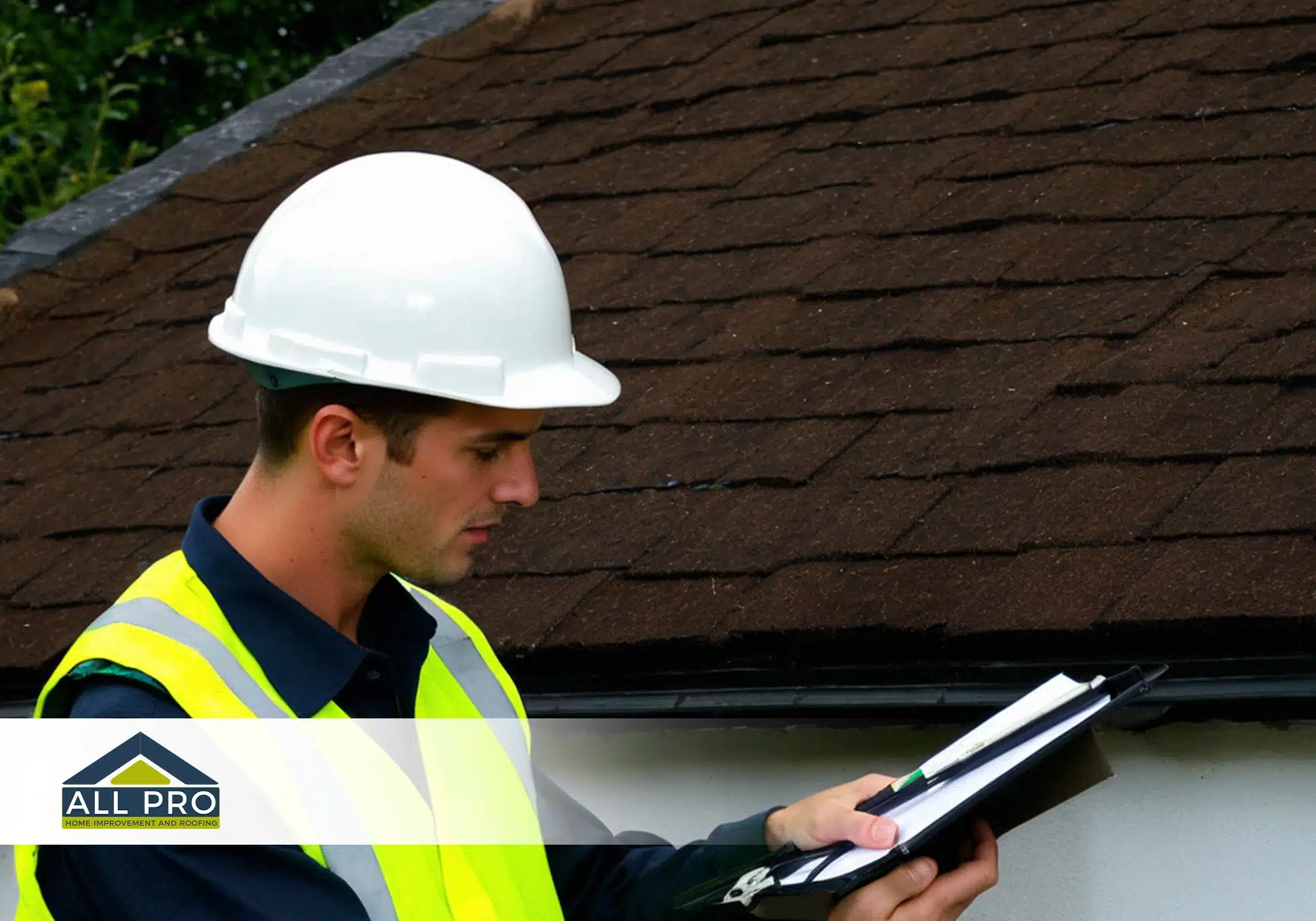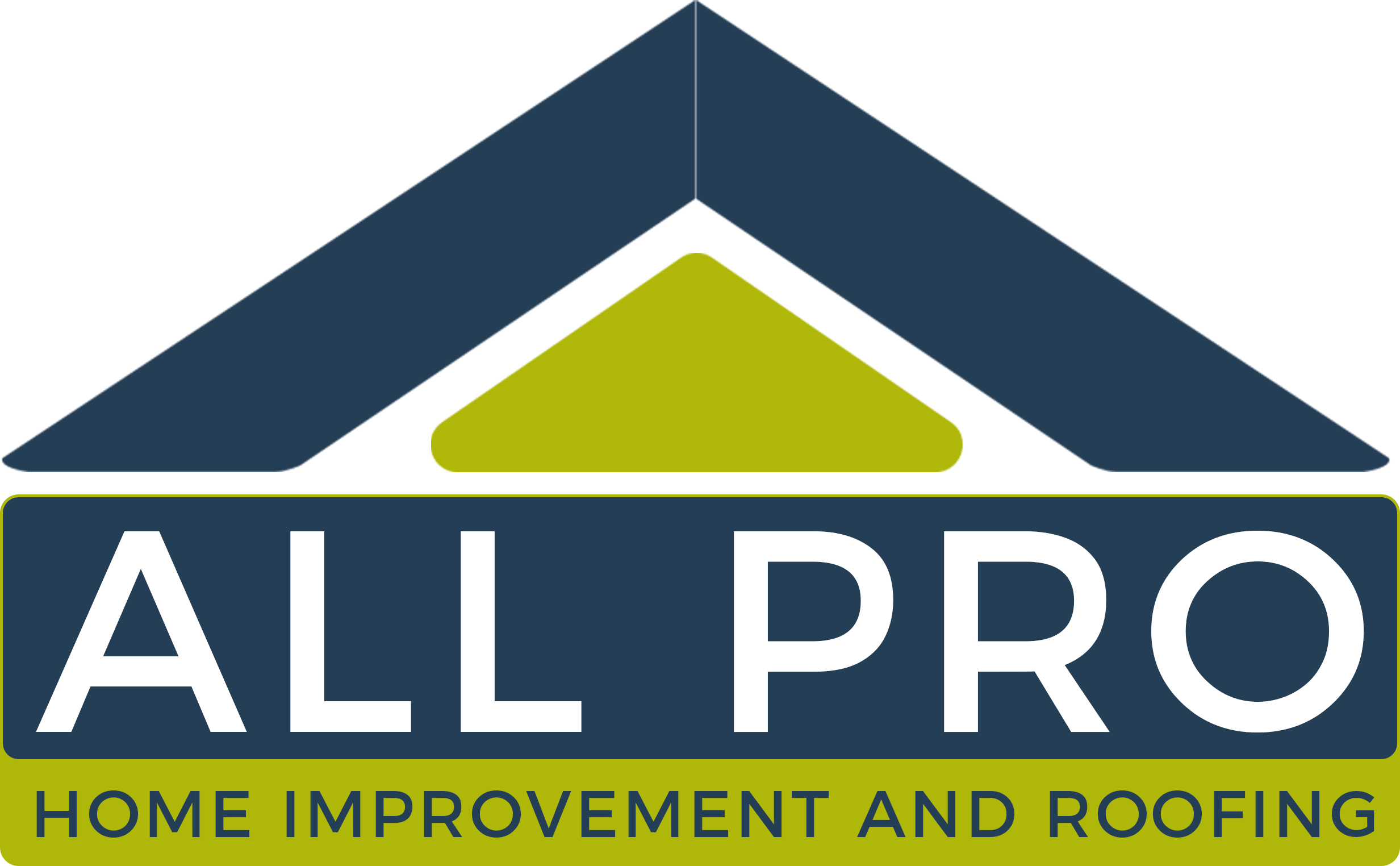
At All Pro Home Improvement and Roofing, our Roof Inspection service is designed to ensure the longevity and safety of your home. Our certified inspectors utilize the latest techniques and technologies to thoroughly assess the condition of your roof, identifying potential issues such as leaks, damaged shingles, and inadequate drainage. With our detailed, comprehensive reports, we provide you with the insight needed to make informed decisions regarding repairs or maintenance. Whether you're preparing for a potential sale or simply want to safeguard your investment, our Roof Inspection service is your first step towards peace of mind and a resilient roof that stands the test of time.
Selecting a skilled roof inspector is essential for homeowners to ensure comprehensive evaluations of their roofs. Look for inspectors with proper certifications and experience in dealing with various roofing materials, such as asphalt shingles, metal roofs, and slate. A qualified inspector will understand how different elements like ventilation, flashing, and drainage play a role in the overall health of your roofing system. They should provide a thorough inspection that includes not just the roof but also the attic and gutters, identifying potential issues related to moisture and water damage.
Experience in both residential and commercial applications is also crucial. Finding someone familiar with common roof problems, such as leaks, moss buildup, or wear and tear, will lead to a more appropriate maintenance plan. It is beneficial to ask for references or reviews from previous clients. Inspectors who use advanced techniques, like infrared technology, can provide a more detailed inspection, helping to spot hidden issues before they turn into costly repairs.
When selecting a roof inspector, it is essential to look for key qualifications and experience. A certified and licensed inspector can offer peace of mind. Inspectors should have knowledge of various roofing materials such as asphalt, clay, and metal. Familiarity with local building codes—including guidelines set by the International Residential Code (IRC)—is vital. An inspector's reputation can be gauged through online reviews and ratings, often available on platforms like Bankrate. Furthermore, selecting an inspector who employs modern technology, such as drones for difficult-to-reach areas, enhances the thoroughness of the inspection.
Thorough inspections should include a close examination of shingles for signs of wear, rust, or failure, as these are common indicators of underlying issues. Attention to ventilation systems is crucial, as poor ventilation can lead to significant long-term damage. Inspectors often track problems like water infiltration along sidewalls and in valleys, which can severely impact a home’s structural integrity. A detailed checklist is helpful in ensuring that all potential issues, including the condition of the soffit and framing, are evaluated. Ultimately, understanding the role of materials used and their longevity in various weather conditions can guide homeowners in making informed decisions about necessary repairs or replacements.
Roof inspections often reveal a variety of common issues that can affect the integrity and longevity of a structure. Cracked or damaged roof shingles frequently show signs of wear due to exposure to severe weather conditions. They can allow moisture to seep in, leading to further problems like sheathing decay. Inspectors also look for blistering and curling of shingles, which might indicate poor installation or thermal cycling that causes the materials to expand and contract.
Another area of concern is the roof deck, where damage can arise from issues like condensation or inadequate insulation. Inspections often include a visual examination of rafters and any signs of fungus or decay. Collateral damage from previous storms may also affect metal components, leading to rust or deterioration over time. Homeowners in regions with diverse climates should be particularly vigilant, as varying wind speeds and temperature fluctuations can exacerbate these problems.
When conducting a roof inspection, it's essential to be vigilant for various types of damage that can compromise the integrity of the roofing system. Look for cracked or missing shingles, which can often lead to leaks and water damage. Inspect areas around plumbing vents and chimneys for signs of wear or inadequate sealing. Additionally, pay attention to the condition of the underlayment, as damaged or deteriorated material can escalate repair costs if not addressed promptly.
Another serious concern is the growth of mold or lichen, which can indicate trapped moisture and poor ventilation. Winter storms can exacerbate problems like ice dams, which put extra pressure on shingles and may lead to further damage. Ensure that gutters are clear and functioning correctly, as clogged gutters can cause overflow and affect the roof's drainage system. Noticing these issues early can save significant funds in repairs or replacements down the line.
Routine roof inspections serve as a crucial element in the insurance claims process. Insurers often require evidence of regular maintenance and documented inspections to assess claims related to roof damage. These inspections can identify issues like corroded materials, thermal cycling, and signs of severe weather impact that may affect the integrity of the roof. Comprehensive detailing in inspection reports assists homeowners in providing necessary information to their insurance company, establishing a clearer picture of the roof's condition at the time of the claim.
In the event of natural disasters or severe storms, well-maintained roofs documented through thorough inspections may yield better outcomes for policyholders. Insurers often take into account the maintenance history when underwriting policies and determining coverage options. Proper insulation, ventilation systems, and the condition of roofing materials, such as shake shingles and vinyl, play roles in the overall valuation that an insurance company levels against claims. Ensuring roofs are watertight and adequately equipped can significantly influence the homeowner's dealings with their insurer.
Roof inspections play a crucial role in the homeowner's insurance process, often serving as the basis for coverage decisions. Insurance providers assess the condition and age of the roof during underwriting. A thorough inspection can reveal existing damages, such as rust or crevice corrosion, which may affect the terms of the insurance policy. By identifying potential issues early, homeowners can address concerns and avoid more significant problems later, ultimately protecting their investments.
The findings from an inspection can also influence negotiations between homeowners and insurance agents. Insurers may determine the coverage limits based on the health of the roof, especially in climates prone to severe weather. Homeowners equipped with detailed inspection reports have a stronger position during discussions with their mortgage lenders and realtors. These reports provide evidence of maintenance and setbacks that could otherwise result in higher premiums.
A roof inspection is important because it helps identify potential issues before they turn into major problems, ensures safety, extends the lifespan of the roof, and can be crucial for maintaining insurance coverage.
It is recommended to have your roof inspected at least once a year, as well as after severe weather events, to catch any damage early.
Look for a licensed and insured inspector with experience, positive reviews, and certifications from reputable roofing organizations to ensure quality service.
Common problems include missing or damaged shingles, leaks, rusted flashing, sagging areas, and improper drainage, which can all lead to more significant issues if not addressed.
A roof inspection can provide documentation of the roof's condition prior to any damage, which can impact coverage and help with claims processing in the event of an incident.


Copyright © All Pro Home Improvement and Roofing. All Rights Reserved
